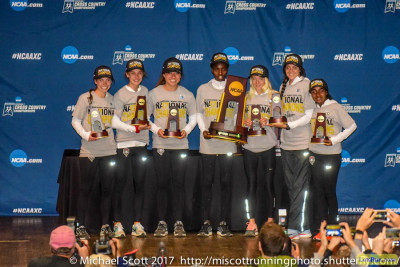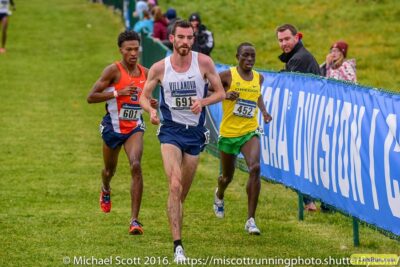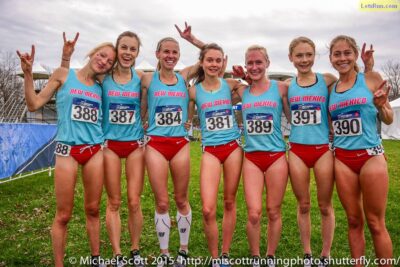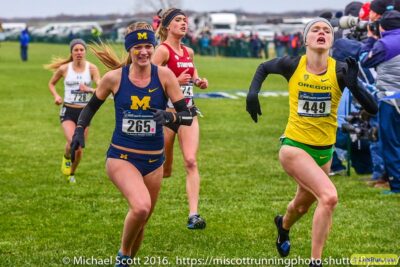The LetsRun.com Decade Awards: Which NCAA Cross Country Programs & Athletes Were the Best of the 2010s?
By Jonathan Gault
November 26, 2019
The 2019 NCAA cross country season is complete, and with that, so is another decade of collegiate cross country. The BYU men and Arkansas women may have been the best in Terre Haute on Saturday, but how about the rest of the decade? That’s what I spent Monday and Tuesday trying to figure out. After poring over old results, it’s time to hand out some awards. Let’s get to it.
*Want more nostalgia? Check out LRC’s NCAA XC archive, with all of our coverage and photo galleries from previous years.
LRC Complete NCAA XC Archive, 2000-19
Men’s Program of the Decade: Northern Arizona
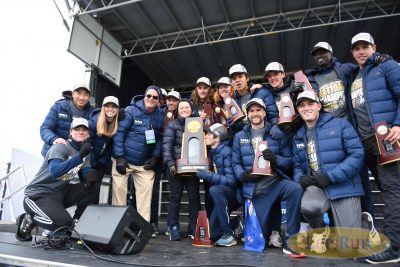 Flagstaff has long been a training ground for elite runners from around the world, but it wasn’t home of champions until the 2010s. As the decade dawned, Northern Arizona had amassed seven NCAA podium finishes under Ron Mann and Eric Heins, but had never won the big one. That changed in 2016, when the Lumberjacks broke through to win their first title in Heins’ final season. Since then, NAU has been the sport’s dominant program, with coach Mike Smith leading the Lumberjacks to two more national titles in 2017 and 2018 and a runner-up finish in 2019. In all, NAU made the podium seven times this decade, tied with Colorado for the most of the 2010s (though NAU won one more title). With a young core (three of NAU’s top four at this year’s NCAA meet were freshmen) and coach (Smith is only 39 years old), NAU is well-positioned to carry its success into the next decade.
Flagstaff has long been a training ground for elite runners from around the world, but it wasn’t home of champions until the 2010s. As the decade dawned, Northern Arizona had amassed seven NCAA podium finishes under Ron Mann and Eric Heins, but had never won the big one. That changed in 2016, when the Lumberjacks broke through to win their first title in Heins’ final season. Since then, NAU has been the sport’s dominant program, with coach Mike Smith leading the Lumberjacks to two more national titles in 2017 and 2018 and a runner-up finish in 2019. In all, NAU made the podium seven times this decade, tied with Colorado for the most of the 2010s (though NAU won one more title). With a young core (three of NAU’s top four at this year’s NCAA meet were freshmen) and coach (Smith is only 39 years old), NAU is well-positioned to carry its success into the next decade.
Honorable mention to Colorado, which won twice and finished on the podium on five other occasions and Oklahoma State, which collected four straight podium appearances (including two titles) at the start of the decade. The fourth team on my own NCAA podium for the last 10 years (with four teams like at NCAAs — which is crazy — not three like the Olympics) is BYU as I’d rather have one NCAA title and five podiums (BYU) than no NCAA titles and five podiums (Stanford). So it’s NAU #1, Colorado #2, OK State #3, and BYU #4. Stanford doesn’t make the cut.
| School | Wins | 2nd | 3rd | 4th | Total podium appearances |
| NAU | 3 | 2 | 0 | 2 | 7 |
| Colorado | 2 | 1 | 3 | 1 | 7 |
| BYU | 1 | 1 | 1 | 2 | 5 |
| Stanford | 0 | 2 | 1 | 2 | 5 |
| OK State | 2 | 1 | 1 | 0 | 4 |
| Wisconsin | 1 | 1 | 1 | 0 | 3 |
| Portland | 0 | 1 | 2 | 0 | 3 |
| Syracuse | 1 | 0 | 1 | 0 | 2 |
| Florida State | 0 | 1 | 0 | 0 | 1 |
| Iowa State | 0 | 0 | 0 | 1 | 1 |
| Ole Miss | 0 | 0 | 0 | 1 | 1 |
| Oregon | 0 | 0 | 0 | 1 | 1 |
Women’s Program of the Decade: New Mexico
Two women’s programs have won multiple titles this decade, as Oregon claimed victories in 2012 and 2016 while New Mexico won it all in 2015 and 2017. New Mexico gets the edge, however, as the Lobos also finished as runners-up in 2018 and earned one more podium appearance (five) than the Ducks.
While Oregon has a storied track & field history, New Mexico didn’t have much of a reputation as a distance hotbed 10 years ago. Entering the decade, the UNM women had never finished higher than 11th at NCAAs. They have now accomplished that feat 10 straight years on the strength of a largely international roster, which has been fronted in recent years by individual NCAA champs Ednah Kurgat of Kenya (2017) and Weini Kelati (2019) of Eritrea.
Colorado was clearly the third-best team this decade but picking a fourth-best team is hard to do as both Providence and Georgetown have fallen on hard times of late. Believe it or not, the Georgetown women haven’t made the meet since 2015 and the Providence women haven’t made it since 2017 (they also missed in 2011). But with one title, one runner-up, and only three missed years, Providence is the fourth team on my all-decade podium.
| School | Wins | 2nd | 3rd | 4th | Total podium appearances |
| New Mexico | 2 | 1 | 1 | 1 | 5 |
| Oregon | 2 | 0 | 2 | 0 | 4 |
| Colorado | 1 | 1 | 2 | 0 | 4 |
| Providence | 1 | 1 | 0 | 1 | 3 |
| Georgetown | 1 | 0 | 0 | 2 | 3 |
| Florida State | 0 | 1 | 0 | 2 | 3 |
| Michigan | 0 | 1 | 0 | 2 | 3 |
| Stanford | 0 | 0 | 2 | 1 | 3 |
| Villanova | 1 | 0 | 1 | 0 | 2 |
| Arkansas | 1 | 0 | 0 | 0 | 1 |
| Michigan State | 1 | 0 | 0 | 0 | 1 |
| Arizona | 0 | 1 | 0 | 0 | 1 |
| BYU | 0 | 1 | 0 | 0 | 1 |
| Iowa State | 0 | 1 | 0 | 0 | 1 |
| San Francisco | 0 | 1 | 0 | 0 | 1 |
| Washington | 0 | 1 | 0 | 0 | 1 |
| Butler | 0 | 0 | 1 | 0 | 1 |
| Texas Tech | 0 | 0 | 1 | 0 | 1 |
| NC State | 0 | 0 | 0 | 1 | 1 |
Men’s Runner of the Decade: Edward Cheserek, Oregon
No other runner won more than one NCAA title this decade, which made the Oregon grad — who became the first man in history to win three in a row — an easy pick. Bursting onto the scene as a freshman in 2013, the Kenyan Cheserek, who won two Foot Locker titles as a prep in New Jersey, stunned defending champion Kennedy Kithuka to win his first individual title before cruising to wins #2 and #3 in 2014 and 2015. The only blemish on Cheserek’s NCAA resume was a third-place finish behind Villanova’s Patrick Tiernan and Syracuse’s Justyn Knight in 2016 — a loaded race, in retrospect, considering all three men would eventually claim NCAA individual titles.
Shoutout to Knight, NAU’s Futsum Zienasellassie, and Stanford’s Grant Fisher, who all registered three top-five finishes this decade; though Zienasellassie and Fisher never won it all.
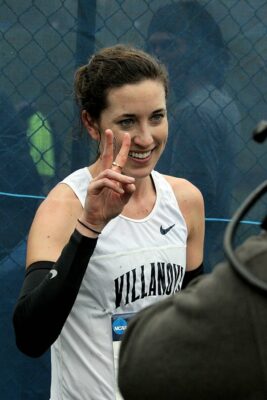 Women’s Runner of the Decade: Sheila Reid, Villanova
Women’s Runner of the Decade: Sheila Reid, Villanova
Dartmouth’s Abbey D’Agostino finished third, second, and first in her three NCAA XC appearances and earned some serious consideration, but Runner of the Decade honors have to go to Reid, the only woman to win multiple individual titles this decade, going back-to-back in 2010 and 2011. Honorable mention to Oregon’s Jordan Hasay (3rd, 2nd, 3rd from 2010-12) and New Mexico’s Weini Kelati (7th, 2nd, 1st from 2017-19).
Men’s Team of the Decade: 2014 Colorado
One of the beautiful things about the team score in cross country is that it is a perfect encapsulation of just how dominant a team was compared to its level of competition. True, that level can fluctuate by year, but it’s still the best way to measure the quality of a team. And by that metric, no squad was better in the 2010s than Colorado in 2014, which tallied the lowest score of the decade, 65, to win NCAAs. No less an authority than Mark Wetmore called it Colorado’s best team ever.
On paper, the 2015 Colorado squad should have been even better as they brought back four of their top five from 2015 and added in a top-20 NCAA finisher in Morgan Pearson, but the 2014 team was better during the regular season and certainly at NCAAs, as the 2015 squad scored 91 points and lost to Syracuse. Likewise, the 2018 NAU team should have been the best of its dynastic run, but their performance at NCAAs (83 points), while dominant, was not quite on par with its regular-season results.
There were three other squads apart from 2014 Colorado that scored fewer than 80 points at NCAAs. Here’s how they compare (PRs listed are from the time of the race):
| 2010 OK State | 2012 OK State | 2014 Colorado | 2017 NAU | |
| Pre-Nats/Wisco | N/A | N/A | 1st Pre-Nats, 35 pts | 1st Wisco, 50 pts |
| Conference | 1st Big 12, 19 pts | 1st Big 12, 24 pts | 1st Pac-12, 30 pts | 1st Big Sky, 24 pts |
| NCAAs | 1st, 73 pts | 1st, 72 pts | 1st, 65 pts | 1st, 74 pts |
| Runner #1 | Girma Mecheso (7th) | Girma Mecheso (5th) | Ammar Moussa (5th) | Matt Baxter (2nd) |
| 13:50/28:26; 7th NCAA 10k in ’09 | 13:34/28:16; 8th NCAA 5k | 3:43/13:56 | 13:46/28:48; 7th NCAA 10k | |
| Runner #2 | German Fernandez (8th) | Tom Farrell (9th) | Ben Saarel (7th) | Tyler Day (3rd) |
| ’09 NCAA 1500 champ; 3:39/7:47/13:25 | 3:41/7:52/13:15; 9th NCAA indoor 3k | 3:41/13:48; 3rd NCAA indoor 3k | 13:49/28:46; 8th NCAA indoor 5k; 9th USA 10k | |
| Runner #3 | Colby Lowe (9th) | Shadrack Kipchirchir (18th) | Blake Theroux (9th) | Peter Lomong (8th) |
| 8:03/13:42/29:16; 8th NCAA indoor 5k | 7:59/13:46/29:08; 9th NCAA indoor 5k | 3:45/13:57/8:49 steeple | 8:16/14:10 | |
| Runner #4 | Tom Farrell (29th) | Joseph Manilafasha (24th) | Connor Winter (24th) | Andy Trouard (35th) |
| 3:42/7:58 | 8:16/14:24 | 3:44/13:55 | 3:38/13:36; 11th USA 5k | |
| Runner #5 | Johnathan Stublanski (36th) | Shane Moskowitz (53rd) | Pierce Murphy (35th) | Geordie Beamish (40th) |
| 3:42 | 3:44/8:07/14:26 | 13:48/29:36 | 3:41/8:10/13:53 |
While PRs can help add context, they’re not always a perfect way of evaluating teams. Ammar Moussa, based on his PRs, shouldn’t have been the top guy for Colorado; Peter Lomong shouldn’t have beaten Andy Trouard in 2017. These teams were all loaded, and you can spin the data to make an argument for any of them as the #1 team. The two OK State squads had killer top threes, Colorado had the best #5 (Murphy would finish 3rd at NCAAs a year later) and #6 (Jake Hurysz, 41st), and NAU had future NCAA champions at the #4 and #5 spot. I wish we had a time machine to see these teams line up against each other on the same day.
But here’s the bottom line: the 2014 Colorado squad rolled through the regular season, demolished the eventual NCAA runner-up, Stanford, at the Pac-12 meet, 30-60 — where they put five men ahead of Stanford’s #2, Maksim Korolev, who would wind up 4th at NCAAs — and posted the lowest score of the decade at NCAAs. They were the best team of the 2010s.
Women’s Team of the Decade: 2015 New Mexico
This was a no-brainer. Not only were the 2015 Lobos the best team of this decade, they were the best college women’s cross country team of all time. We broke down the reasoning at the time (see here and here), but here are a few numbers:
80 — New Mexico’s winning margin at NCAA, in points
49 — New Mexico’s score at NCAAs, the lowest since the field expanded to 31 teams in 1998
32 — New Mexico’s score at what is now known as the Nuttycombe Invite, the lowest in the meet’s 11-year history
5 — Number of Lobos in the top 10 at Nuttycombe
4 — Number of Lobos in the top 15 at NCAAs (Courtney Frerichs 4th, Alice Wright 5th, Rhona Auckland 13th, Calli Thackery 15th)
Honorable mention to 2018 Colorado, who crushed it at NCAAs with 65 points, but that squad also got pasted at Pac-12s by Oregon, 32-48. You can’t be team of the decade if you don’t win your conference meet.
Upset of the Decade (Men’s Individual): Edward Cheserek, Oregon, 2013
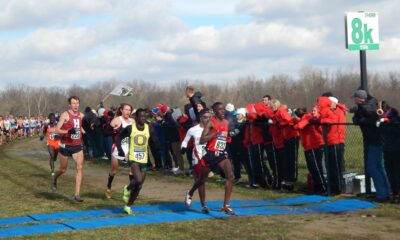 Patrick Tiernan handing Cheserek his first defeat at NCAA XC in 2016 was definitely a big upset, but Tiernan had finished second at NCAAs the previous year, was undefeated that fall, and had run 13:20 and made the Olympics earlier in 2016. Cheserek’s win in 2013, meanwhile, was an outcome that nobody saw coming at the time.
Patrick Tiernan handing Cheserek his first defeat at NCAA XC in 2016 was definitely a big upset, but Tiernan had finished second at NCAAs the previous year, was undefeated that fall, and had run 13:20 and made the Olympics earlier in 2016. Cheserek’s win in 2013, meanwhile, was an outcome that nobody saw coming at the time.
In 2013, Texas Tech’s Kennedy Kithuka, the reigning NCAA champion, was demolishing field after field. He ran 22:52.8 at Pre-Nats to win by 32.7 seconds and miss Sam Chelanga‘s LaVern Gibson course record by 1.5 seconds. He won the Big 12 meet by 37.9 seconds. Cheserek, meanwhile, was a highly-touted recruit, but was in his first season of collegiate cross country; he had finished just fourth at Pre-Nats, 39.2 seconds behind Kithuka. It’s hard to imagine now, but Cheserek was a massive underdog; in the moment, his winning move over the final two kilometers — after being dropped midway through the race — was absolutely stunning.
Upset of the Decade (Women’s Individual): Karissa Schweizer, Missouri, 2016
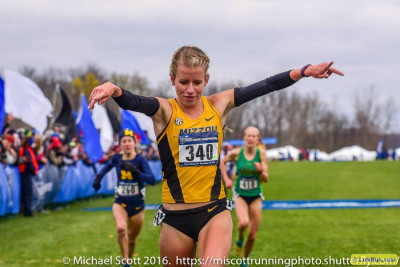 Like Cheserek in 2013, Schweizer finished a distant fourth at Pre-Nats in 2016 — she was 29.3 seconds back of winner Erin Finn of Michigan — but won it all when she returned to Terre Haute a month later. Schweizer, who failed to qualify for NCAAs in 2015 and had finished 155th as a freshman in 2014 — had flashed potential by finishing third in the NCAA 5k in June 2016, but few viewed her as a title contender.
Like Cheserek in 2013, Schweizer finished a distant fourth at Pre-Nats in 2016 — she was 29.3 seconds back of winner Erin Finn of Michigan — but won it all when she returned to Terre Haute a month later. Schweizer, who failed to qualify for NCAAs in 2015 and had finished 155th as a freshman in 2014 — had flashed potential by finishing third in the NCAA 5k in June 2016, but few viewed her as a title contender.
“I don’t think she even thought she had a chance to win honestly – like she didn’t even want to talk about being in the top 5,” Missouri coach Marc Burns told LetsRun after the race. “That’s why we were like, let’s just focus on the top 10 and give yourself a chance.”
But Schweizer shocked the NCAA by running down Finn and Notre Dame’s Anna Rohrer to take the title. It would be the first of many; Schweizer would win five more titles on the track before graduating in 2018.
Upset of the Decade (Men’s Team): 2019 BYU
While upsets happen in the team competition, they’re far more consequential on the individual side. There have been only two teams this decade ranked outside the top two to win NCAAs, and both of them were ranked #3: 2013 Colorado and 2019 BYU. Of the two, BYU was a much bigger underdog. There was no dominant team in 2013, as evidenced by the fact that three schools (NAU, Oklahoma State, and Colorado) all received multiple first-place votes in the final coaches’ poll. Colorado also had the single most impressive race of the season, scoring just 28 points to crush the competition at Pac-12s. They weren’t the favorite, but their win wasn’t much of an upset, either.
BYU, on the other hand, wasn’t given much of a chance in 2019. NAU had rolled through the season and hadn’t lost a meet in four years, while BYU had been beaten earlier in the year at Dellinger and looked to be an inferior version of the 2017 and 2018 teams that lost to NAU at NCAAs. And even if NAU were to lose — something that most of the experts viewed as extremely unlikely — Colorado, not BYU, seemed like the team that would beat them. Instead, it was the Cougars who prevailed, in the end quite handily.
Upset of the Decade (Women’s Team): 2016 Oregon
In the 25 years for which we have data from the USTFCCCA coaches’ poll, only one women’s squad ranked outside the top four has won an NCAA title.
The 2016 Oregon women were 4th…at their conference meet.
This was the upset of all upsets. Yes, it’s a little weird to say that considering it’s, well, Oregon, but no one saw this coming. Entering NCAAs, the Ducks were ranked 12th and had won just one of their five meets — the season-opening Dellinger Invitational in September, where the second-place team was noted powerhouse Northwest Christian University.
It wasn’t just that the Ducks weren’t viewed as a contender; #1 Colorado looked close to invincible. Mark Wetmore said in the preseason that the 2016 Buffaloes could be his best squad ever, and entering NCAAs, that looked to be the case. Colorado had smoked everyone all season, including Oregon at Pre-Nats (93-154) and Pac-12s (33-88).
But Colorado’s #1 runner, Erin Clark, ran her worst race of the season to finish 133rd, while Oregon got huge runs from its top three of Katie Rainsberger (a true freshman), Alli Cash, and Samantha Nadel. Those three had finished 5th, 13th, and 22nd at Pac-12s but 4th, 14th, and 21st at NCAAs.
Oregon’s win wasn’t just the biggest NCAA upset ever; it was also the closest finish ever as Oregon beat Michigan by just one point. And that point was decided by the narrowest of margins; both Oregon’s #5, Maggie Schmaedick, and Michigan’s #5, Jaimie Phelan, were credited with a time of 20:38.2, but Schmaedick crossed the line first. Flip those places and Michigan would have been your champion.
Other Interesting Stats
- There’s a lot more parity on the women’s side than on the men’s side. Only 12 men’s teams made it onto the podium this decade, with three programs (NAU, Colorado, and Stanford) combining for half of all the trophies awarded. Meanwhile, 19 women’s teams earned trophies in the 2010s.
- Of the 10 men’s title teams, five of them relied on at least one transfer in their top five and seven relied on at least one international student. Three schools (2013 Colorado, 2014 Colorado, 2019 BYU) had no international runners in their top five, but the other seven title teams combined for an average of 2.1 per team.
- Of the 10 women’s title teams, eight of them relied on at least one transfer in their top five (2010 Villanova and 2014 Michigan State were the exceptions). Six of the 10 champs relied on at least one international runner; New Mexico’s 2015 and 2017 squads, each of which featured four international runners in their top five, were the most reliant on foreign talent.
- The data above comes from our full breakdown of the composition of NCAA title-winning rosters, which can be found here.
Be a fan and talk about this article on our world-famous messageboard. MB: The LetsRun.com Decade Awards: Which NCAA Cross Country Programs & Athletes Were the Best of the 2010s?
Correction: An earlier version of this article stated that the NAU men had eight podium appearances this decade and BYU had four; in fact, NAU had seven and BYU had five.
- College
- Cross Country
- LRC
- Women's Running
- Men's Running
- Distance
- Edward Cheserek
- Patrick Tiernan
- University of Oregon
- University of Colorado
- University of New Mexico
- NCAA cross country
- Northern Arizona University
- Brigham Young University
- Jonathan Gault
- Karissa Schweizer
- NCAA Cross Country Championships
